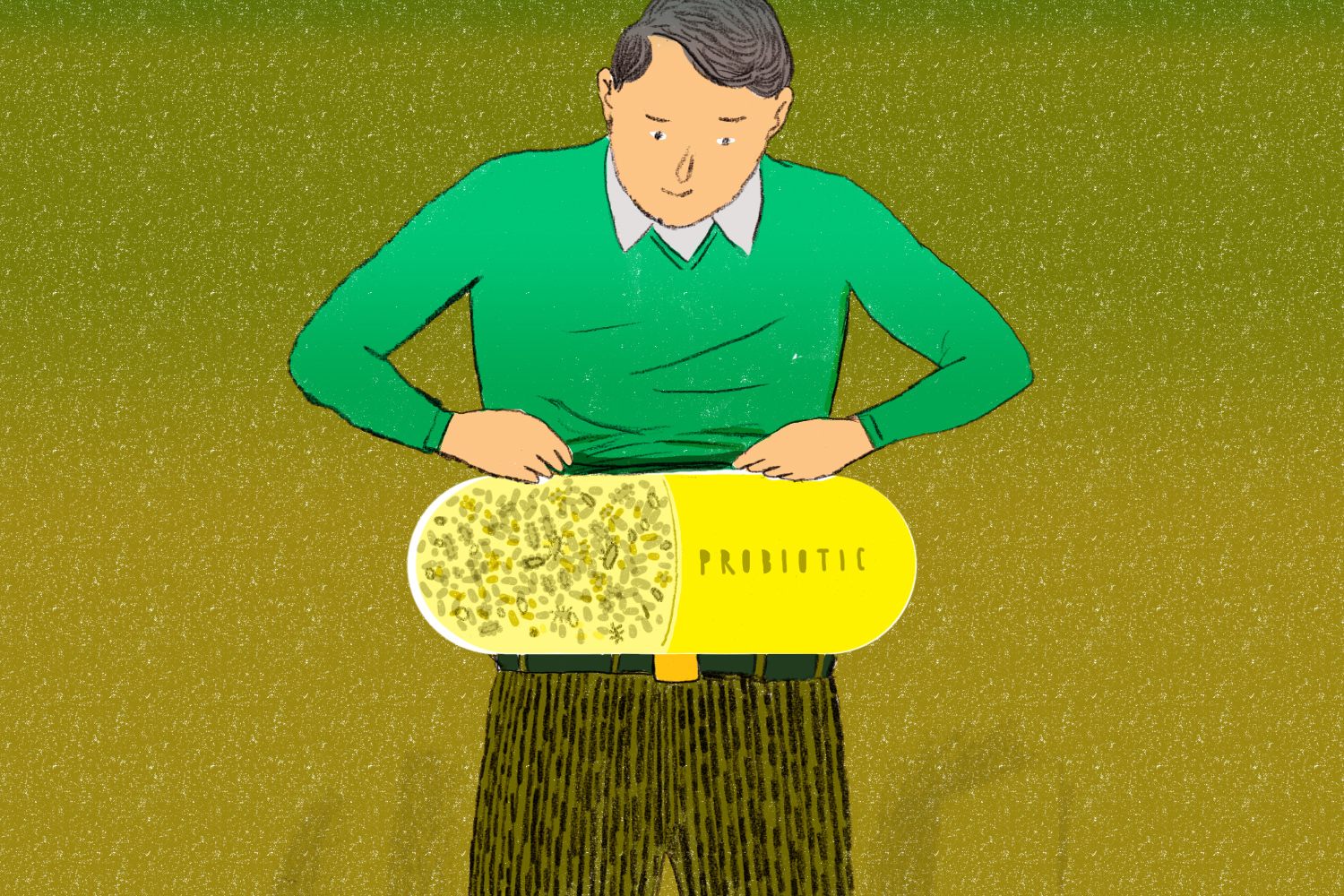
From strengthening your brain to slimming your belly, you’ve likely heard the promises of probiotics. Headlines call them the future of preventive medicine and disease treatment. But for now, the key word is future.
“For those with bowel disorders or urinary tract infections, there’s little doubt probiotics can be helpful,” says Dr. Shekhar Challa, a gastroenterologist and author of Probiotics For Dummies. But for healthy adults? “Things are still open to interpretation,” Challa says.
Here’s what scientists know now: Your body houses hundreds of trillions of bacteria, many of which reside in your gastrointestinal tract. Of those gut bacteria, 90 percent appear to be system-supporting or “friendly,” Challa explains. Those are the probiotics. And the more types or “strains” of probiotic bacteria you have in your gut, the better.
Plenty of evidence shows that a diverse population of gut bacteria aids digestion and immune health, Challa says. Two bacteria strains in particular, Lactobacillus and Bifidobacteria, seem to be supportive, he says.
One recent U.K. study found Lactobacillus may combat the type of insulin resistance that contributes to obesity and the development of type 2 diabetes. If the tight junctions between the cells in the lining of your gut break down, the gap allows “inflammation-causing agents” to get into your bloodstream and cause trouble, says the study’s author, Dr. Carl Hulston of Loughborough University. But probiotics appear to seal those junctions and prevent this “leaky gut” situation.
“It’s a little too early to advise probiotic consumption as a prevention or cure for diabetes,” Hulston says. “But our initial findings are very positive.”
You Asked: Your Top 10 Health Questions Answered










Read through the scientific literature on probiotics, and you’ll run into hundreds of similar statements. Probiotic potential seems limitless. The problem is figuring out how to get the right types of bacteria to set up shop in your body.
“You can eat probiotic foods like yogurt or kefir, which I think everyone should consume on a daily basis,” Challa says. “But just because you’re ingesting a probiotic doesn’t mean it’s being incorporated into your gut.” Harsh stomach acids and other aspects of digestion can kill the bacteria before they establish residency, Challa says.
Probiotic supplements—some of which contain coatings or ingredients designed to protect their contents from your belly’s acids—may be more effective, Challa says (though it should be noted that he’s part owner of a company that produces these types of supplements.) But he’s quick to add there are still a lot of roadblocks. Your age, your gut’s current micro-organic makeup, your diet and many other factors make it hard to offer broad recommendations, he explains.
It gets even murkier when you consider research from Dr. Daniel Bolnick and colleagues at the University of Texas. They’ve shown that—at least in some animals—eating a wider variety of foods actually reduces the number of probiotic bacteria in the intestinal tract. “We looked at the effects of diet mixing on gut microbes,” Bolnick says. “And we found the more you mix, the fewer you have.”
This doesn’t mean that consuming many different types of bacteria is bad. It just raises questions, Bolnick says. “Combinations of foods can do unexpected things,” he adds.
So what’s a wannabe bacteria-booster to do? Challa says that eating probiotic foods on a daily basis, like yogurt, kefir and kombucha may be beneficial, and certainly won’t harm you. “There’s no evidence that people can overdose on probiotics,” he says. And for those with gastrointestinal issues, he strongly suggests a probiotic supplement containing Lactobacillus and/or Bifidobacteria. (Just run it by your doctor first.)
When it comes to all the other benefits you’ve heard about, it’s too early for experts to offer firm advice. “There are just too many questions and not enough hard data,” Challa says. “The potential is there. The understanding is not.”
Read next: Is It Bad To Eat the Same Thing Every Day?
More Must-Reads From TIME
- The 100 Most Influential People of 2024
- Coco Gauff Is Playing for Herself Now
- Scenes From Pro-Palestinian Encampments Across U.S. Universities
- 6 Compliments That Land Every Time
- If You're Dating Right Now , You're Brave: Column
- The AI That Could Heal a Divided Internet
- Fallout Is a Brilliant Model for the Future of Video Game Adaptations
- Want Weekly Recs on What to Watch, Read, and More? Sign Up for Worth Your Time
Contact us at letters@time.com